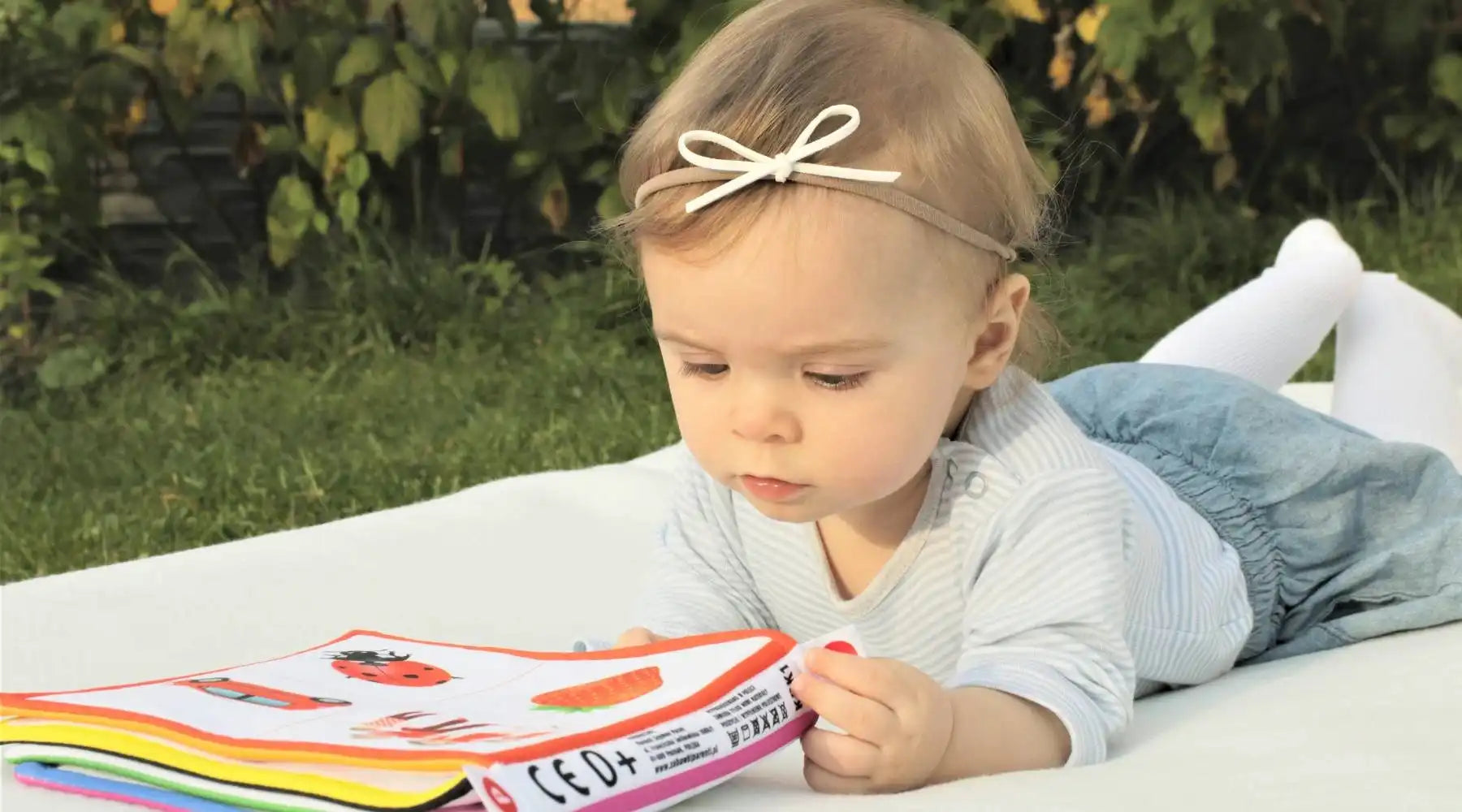Postpartum Mental Health
Learn More
Becoming a parent brings big changes, and while joy is often part of the journey, it’s normal for some mothers to struggle emotionally. Distinguishing between short-term baby blues, postpartum depression, and postpartum anxiety helps parents recognize when it’s time to seek support. The good news: postpartum mental health concerns are common, treatable, and nothing to be ashamed of. Early recognition and proactive care ensure both you and your baby thrive.
What are the signs of postpartum depression?
Postpartum depression (PPD) is more serious than the temporary “baby blues.” Signs include persistent sadness or tearfulness that lasts longer than two weeks, difficulty bonding with your baby, feeling hopeless or guilty, loss of interest in things you once enjoyed, and changes in sleep or appetite. Some parents describe feeling emotionally numb or disconnected. Unlike baby blues, which typically fade within 1–2 weeks, postpartum depression can interfere with daily life and doesn’t resolve on its own. If these symptoms sound familiar, reach out to your doctor or a mental health professional—treatment is highly effective, and you don’t have to go through it alone.
How is postpartum anxiety different from baby blues?
The “baby blues” are common, temporary mood swings caused by hormonal shifts, fatigue, and adjustment to new routines. They usually appear a few days after birth and fade within 1–2 weeks. Postpartum anxiety, however, goes beyond normal worry. It often includes constant racing thoughts, panic attacks, obsessive fears about your baby’s safety, or physical symptoms like tension and a racing heart. Unlike baby blues, postpartum anxiety doesn’t resolve quickly and may worsen over time without support. If you find yourself unable to relax or consumed by fear, it may be time to seek professional help.
When should I seek help for postpartum mental health concerns?
Seek help if sadness, anxiety, or mood swings last longer than two weeks, worsen over time, or interfere with caring for yourself or your baby. Other red flags include trouble sleeping even when the baby sleeps, frequent crying spells, panic attacks, or feeling disconnected from your child. Trust your instincts—if you feel “off” or unlike yourself, reaching out is always the right choice. Early support from your OB-GYN, pediatrician, or a perinatal therapist can prevent symptoms from getting worse and set you on the path to recovery.
Stress & Overwhelm
Learn More
Parenting is a full-time, around-the-clock role, and it’s easy for stress to pile up—especially in the early months. Feeling overwhelmed doesn’t mean you’re failing; it means you’re human. The key is spotting the warning signs early and building small, sustainable habits that protect your mental health. With realistic expectations, support, and boundaries, you can prevent stress from snowballing into burnout.
How can I manage stress as a new parent?
The best way to manage stress as a new parent is to combine rest, routines, and support. Sleep when you can, even if it’s just a short nap, and don’t be afraid to let chores wait. Build simple daily rhythms—like a set bedtime routine for your baby or meal prepping on weekends—to cut down on decision fatigue. Accept help from friends and family, whether that’s meals, babysitting, or just company. Even small moments of self-care—like drinking your coffee hot, taking a shower, or stepping outside for fresh air—can restore calm.
How do I avoid burnout in early motherhood?
Write a clear and concise To avoid burnout, focus on pacing yourself. Set realistic expectations—your home won’t look perfect, and that’s okay. Share responsibilities with your partner or support system so you’re not carrying the mental and physical load alone. Schedule downtime, even if it feels indulgent. Burnout often creeps in when mothers put themselves last; prioritizing your rest and well-being isn’t selfish—it’s essential. If you feel constantly exhausted, irritable, or detached, that’s a sign to step back and seek help. to guide your customers.
Parental Identity & Transition
Learn More
Becoming a parent is one of life’s biggest transitions, and it can leave you questioning who you are outside of caregiving. Many moms and dads experience a mix of joy, grief, and identity shifts—missing parts of their old life while adjusting to new roles and responsibilities. These feelings are completely normal and don’t mean you love your child any less. Rebuilding confidence and finding balance comes from small, intentional steps that help you feel like you again while embracing parenthood.
How do I cope with losing my sense of self after having a baby?
It’s common to feel like your personal identity gets lost in the constant demands of parenting. Coping starts with intentionally carving out small, realistic ways to reconnect with yourself. Listen to your favorite music during feedings, wear clothes that make you feel confident, or pick up an old hobby in short bursts of time. Lean on your support system—let your partner or family step in so you can recharge. Over time, these little moments remind you that you’re more than just a parent, and they help you rediscover the parts of yourself that feel fulfilling.
How can I rediscover who I am outside of parenting?
Rediscovering yourself doesn’t have to be dramatic—it can happen in small, consistent ways. Journaling can help you reconnect with your goals and values. Signing up for a local class, joining a book club, or scheduling coffee with a friend can remind you of your interests outside of parenthood. You might also explore new passions that fit better into your lifestyle now. The goal isn’t to return to your “old” self, but to build a more complete version of yourself that includes, but isn’t defined only by, being a parent.
Therapy & Support Systems
Learn More
Therapy and outside support aren’t signs of weakness—they’re tools that help parents manage stress, prevent burnout, and feel less isolated in the challenges of raising children. Knowing when to seek help, what type of professional to look for, and how to build a reliable support network can make parenting feel more sustainable. Many parents find that therapy, partner communication, and peer groups provide the encouragement and perspective they need to feel confident and capable again.
How do I know if I need therapy as a parent?
You may benefit from therapy if you feel persistently anxious, overwhelmed, sad, or unable to enjoy daily life. Struggles with bonding, frequent irritability, or feeling detached from your baby are also red flags. Therapy isn’t only for moments of crisis—it can also be a proactive step to protect your mental health and improve family dynamics. If your symptoms last more than two weeks, interfere with daily functioning, or worsen over time, it’s a strong signal to reach out for professional support.
What kind of therapist should new parents look for?
When seeking a therapist, look for someone with training in perinatal or maternal mental health. Licensed clinical social workers, psychologists, or counselors with expertise in postpartum depression, anxiety, or family transitions can provide tailored guidance. If in-person sessions aren’t possible, many therapists now offer telehealth options, which can be especially helpful for new parents balancing childcare. A good fit matters—don’t hesitate to “shop around” until you find a provider who feels supportive and easy to connect with.
How do I talk to my partner about needing more support?
Open, specific communication makes it easier for your partner to step in. Instead of saying “I need more help,” try: “I’m feeling stretched thin—can you handle bedtime twice a week so I can recharge?” Specific requests are actionable, while vague ones can create confusion. Framing the conversation around teamwork—how supporting you strengthens the whole family—can also reduce defensiveness and foster a sense of partnership.
Mindfulness & Mental Wellness Tools
Learn More
Parenting is as much an emotional journey as it is a physical one. Even the most patient moms and dads can feel stretched thin when sleepless nights, constant demands, and self-doubt pile up. Building a toolbox of simple, accessible practices—like mindfulness, journaling, and affirmations—can help parents stay grounded. These tools don’t require hours of free time or special training; they’re about small, realistic steps that bring calm and clarity into busy days. Using apps or guided practices can make it even easier to stay consistent. Just as importantly, knowing how to respond when your child expresses dark or frightening thoughts ensures your home is a safe, supportive space.
What are simple mindfulness practices for busy parents?
Mindfulness doesn’t have to mean long meditation sessions—it’s about staying present in the moment. Busy parents can try quick, practical practices like:
- Taking three deep breaths before responding to your child when emotions run high.
- Pausing for a short walk outside to reset your energy.
- Spending five minutes on guided meditation before bed.
- Using mindful eating during a snack or meal—slowing down, noticing flavors, and giving yourself a mental break.
Even small, regular practices help lower stress levels and increase patience, which makes daily parenting challenges easier to manage.
Can journaling really help my mental health?
Yes—journaling is one of the most effective self-care tools for parents. Writing down your thoughts provides a healthy outlet for stress, helps you process emotions, and makes it easier to spot patterns in your mood or triggers. Even a few sentences each day can bring clarity. Some parents like gratitude journaling, where you note three things you’re thankful for, which shifts focus away from daily frustrations. Over time, journaling builds self-awareness and resilience—two skills that directly improve mental health.
What should I do if my child expresses dark or scary thoughts?
Stay calm and listen with empathy—your reaction sets the tone. Thank your child for sharing, validate their feelings, and reassure them that it’s safe to talk about hard emotions. Ask gentle, open questions like, “Can you tell me more about what you’re feeling?” If your child mentions self-harm or suicide, treat it as an emergency and seek professional help immediately. In the U.S., you can dial 988 to connect with the Suicide & Crisis Lifeline. Taking your child’s words seriously not only protects their safety but also builds long-term trust in your relationship.
Relationship Dynamics & Mental Load
Learn More
Parenting is a team effort, but the “invisible work” of running a household often weighs more heavily on one partner. This unspoken responsibility—called the mental load—includes remembering appointments, planning meals, anticipating needs, and managing schedules. Left unaddressed, it can cause resentment, communication breakdowns, and even strain the relationship. By talking openly, dividing responsibilities fairly, and showing appreciation, couples can share the load and build a stronger partnership. These conversations also help kids see teamwork and balance modeled at home.
What is the mental load and how do I share it with my partner?
The mental load refers to the planning and thinking behind daily family life, not just the physical tasks. Sharing it means dividing responsibility for both the “what” and the “when”—for example, not just who cooks dinner, but who remembers to buy groceries. To share fairly, list out recurring responsibilities and decide together who owns each one. Rotate tasks when needed, and check in regularly to see if the balance still feels fair.
How do I avoid resentment in my relationship?
Resentment often grows when needs go unspoken. Prevent it by having regular check-ins with your partner, where both of you can share what feels overwhelming and what’s working. Be specific when asking for help—“Can you take over bedtime on Tuesdays and Thursdays?” is easier to act on than “I need more help.” Acknowledging each other’s efforts, even in small ways, also prevents frustration from building up.
How can I manage expectations around parenting roles?
Parenting roles are flexible and should grow with your child’s needs. Start by discussing what each of you expects—sometimes tension comes from unspoken assumptions about who “should” handle certain jobs. Avoid rigid “mom jobs” vs. “dad jobs.” Swap tasks occasionally to maintain balance, and keep revisiting roles as schedules, work demands, or family needs shift.
Sleep & Its Mental Health Impact
Learn More
Sleep isn’t just a luxury for new parents—it’s a lifeline. Exhaustion can quickly spill over into mood, patience, and overall well-being. Sleep deprivation is one of the most overlooked contributors to postpartum depression and anxiety, yet even small adjustments to rest can make parenting more sustainable. While newborn sleep is unpredictable, finding ways to prioritize rest (through naps, support systems, and realistic routines) helps protect your mental health and your ability to show up fully for your child.
Can sleep deprivation cause anxiety or depression?
Yes. Chronic sleep deprivation doesn’t just make you tired—it impacts brain chemistry, mood regulation, and stress response. Research shows that lack of sleep is linked to higher risks of postpartum depression and anxiety. Parents often describe feeling irritable, overwhelmed, or emotionally fragile when they go too long without restorative rest. Protecting your sleep, even in short stretches, is one of the most powerful ways to safeguard mental health in early parenthood.
How do I prioritize rest when my baby doesn’t sleep?
You can’t always control how long your baby sleeps, but you can set yourself up for recovery. Rest when the baby rests, even if that means letting chores wait. Ask your partner, family, or friends to step in so you can nap. Simplify your days by prepping meals ahead and lowering expectations during particularly rough weeks. Sometimes “rest” doesn’t mean sleep—it can be a quiet shower, a short walk, or 10 minutes of deep breathing to reset your nervous system.
Should I nap when the baby naps?
Yes—when you can. The phrase “nap when the baby naps” gets eye rolls because it’s not always practical, but if you have the chance, take it. Even a 20–30 minute nap can refresh your mood and improve focus. If you can’t sleep, use that time for restorative activities like journaling, meditation, or simply lying down with your eyes closed. The goal is to recharge, not to “get things done.”
Body Image & Confidence
Learn More
Adjusting to your postpartum body is one of the most personal and emotional parts of new parenthood. Your body has accomplished something extraordinary, but it’s normal to feel conflicted about the changes. Between lingering baby weight, stretch marks, scars, and the simple reality of looking and feeling different, many new parents struggle with body image and self-confidence. The key is giving yourself grace, focusing on strength over appearance, and taking small but intentional steps to reconnect with your body in ways that feel positive and empowering.
How do I accept my postpartum body?
Acceptance starts with compassion. Your body has grown, birthed, and nourished a human—it deserves appreciation, not criticism. Instead of comparing yourself to “before baby” photos or unrealistic social media images, focus on what your body can do now. Wearing clothes that fit your current shape (not clothes you hope to fit into) makes a big difference in confidence. Small acts—like choosing fabrics you love, standing tall, or practicing affirmations—help shift your mindset toward gratitude and pride in your postpartum body.
What if I feel unattractive or disconnected from my body?
It’s common to feel less attractive or disconnected from your body after birth. Hormonal shifts, sleep deprivation, and physical recovery all play a role. Rebuilding connection takes time and gentle effort. Try movement that feels good—like stretching, walking, or dancing to music you love. Pampering rituals, such as a warm bath, skincare routine, or wearing lingerie that makes you feel confident, can also help. If intimacy feels difficult, communicate openly with your partner so you rebuild connection without pressure.
Are there gentle ways to regain strength and confidence?
Yes. Postpartum fitness doesn’t need to be extreme to be effective. Begin with light walks, breathing exercises, and pelvic floor strengthening. Once your doctor clears you, try postnatal yoga or gentle strength training. The goal is not rapid weight loss but rebuilding stability, strength, and energy. Pairing movement with nourishing foods, hydration, and sleep (when possible) reinforces both physical and mental recovery. Every small step—whether lifting a little more, walking a little farther, or feeling more energized—becomes a confidence boost.
Mental Health in Dads & Partners
Learn More
Parenthood changes life for both moms and dads, yet fathers’ mental health often gets overlooked. While moms face more open discussion around postpartum depression and anxiety, dads also experience stress, identity shifts, and emotional struggles after a baby arrives. About 1 in 10 fathers deal with postpartum depression, and even more report high stress, burnout, or feeling disconnected. Recognizing these challenges early and offering support helps both partners—and the whole family—thrive.
Do dads experience postpartum depression?
Yes. Research shows about 1 in 10 fathers experience postpartum depression, though symptoms may look different from those in mothers. Instead of sadness alone, dads may show irritability, anger, withdrawal, or loss of interest in hobbies and relationships. Hormonal changes, lack of sleep, financial stress, and the pressure of new responsibilities all contribute. Left untreated, paternal depression can affect bonding with the baby and strain the relationship with a partner. Seeking help is an important step in protecting both dad’s well-being and the family’s overall health.
What are signs of stress in new fathers?
Stress in new dads can show up as mood swings, restlessness, and irritability. Some fathers may struggle to sleep even when the baby sleeps, drink more alcohol, or pull away from family life. Other signs include trouble concentrating, constant worry about finances or parenting, and feeling detached from the baby. Noticing these signals early allows dads to get support before stress escalates into depression or burnout.
How can partners support each other mentally?
Support starts with open communication and teamwork. Small actions—like checking in daily about how each of you are coping—go a long way. Sharing household and parenting responsibilities fairly reduces resentment, while carving out personal downtime for both partners helps prevent burnout. Listening without judgment, validating each other’s feelings, and offering practical help (like handling a feeding, or taking over chores) all build resilience. Remember: supporting your partner strengthens the entire family.
Miscellaneous Mental Health Questions
Learn More
Parenting doesn’t require perfection—it requires presence. Some of the hardest parts of parenthood aren’t about feeding or sleep schedules, but about the mental and emotional load you carry every day. From guilt and perfectionism to carving out personal time and modeling healthy coping skills, these questions capture the common struggles many parents face. By answering them directly and compassionately, you can better support your own mental well-being while showing your children what resilience looks like in real life.
What does “parental guilt” really mean?
Parental guilt is the nagging feeling that you’re not doing enough or not doing things “right.” It often comes from comparing yourself to other parents, scrolling through highlight reels on social media, or setting unrealistic expectations. You might feel guilty for working, guilty for staying home, guilty for taking a break, or guilty for not taking one—the cycle never ends if you let it. The key is to recognize that good parenting is not about perfection; it’s about being consistent, loving, and responsive. Reframing guilt as a sign that you care deeply can help you move from self-criticism to self-compassion.
How do I let go of perfectionism as a parent?
Letting go of perfectionism starts with shifting your perspective. Accept that mistakes are part of the parenting journey and can even be valuable teaching moments for your child. Instead of striving for flawless execution, focus on progress—what’s improving week to week, not what went “wrong” today. Practical steps include lowering expectations for housework during intense parenting seasons, practicing self-compassion (“I’m doing my best with what I have today”), and surrounding yourself with realistic voices rather than idealized social media feeds. Remember: modeling imperfection teaches your kids resilience.
How do I balance parenting and personal time?
Finding balance isn’t about having endless hours to yourself—it’s about protecting small, meaningful pockets of time. Start by setting boundaries: schedule 20–30 minutes a day for activities that recharge you, whether that’s a walk, journaling, or reading. Treat this time as non-negotiable, the way you would a pediatrician appointment. Share responsibilities with your partner, relatives, or trusted friends to create space. And most importantly, drop the guilt—taking care of yourself shows your child that self-care matters, and a recharged parent is a better parent.
How can I teach my children emotional regulation if I struggle with it?
The best way to teach emotional regulation is to model it, even if you’re still learning yourself. Show your child that it’s okay to name feelings out loud—“I’m feeling frustrated, so I’m going to take a breath.” Use simple coping strategies like deep breathing, stretching, or stepping away briefly when emotions run high. Kids learn by watching, and your willingness to handle your own emotions with honesty teaches them healthy tools for managing theirs. If regulation feels like a constant struggle, therapy or parenting workshops can give you additional strategies and support.










